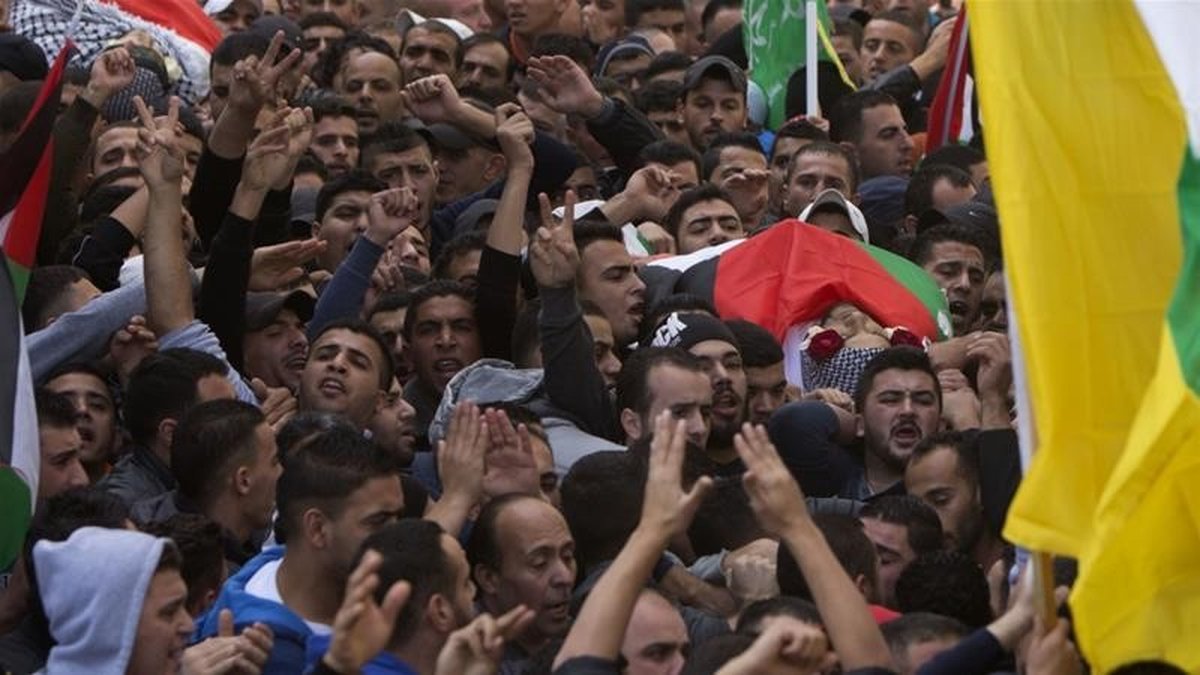
A recent report has found that Israel is keeping hundreds of bodies in its infamous cemeteries of numbers.
On March 7, 2002, during the Second Intifada, or Palestinian uprising, he says his son Shadi "left the house and never came back".
Shadi had gone to carry out a suicide bombing at the entrance to the illegal Israeli settlement of Ariel in the occupied West Bank, killing himself and wounding 15 Israelis.
"We had no idea that he was planning to carry out an attack," Nassar says.
"If I had any suspicions, I would have beat him up, and thrown him at home.
"A father losing his son? How am I supposed to feel?"
Fifteen years later, Israel continues to refuse to return Shadi's body, or what's left of it, to his family for burial.
The youth's remains are said to be in Israel's infamous "cemeteries of numbers", along with hundreds of other Palestinians. In a recent report published last month, Palestinian rights groups estimated there are at least 249 Palestinians, including Shadi, buried in cemeteries across Israel in closed military zones, and nine others in freezers in Tel Aviv.
The cemeteries are made up of mass graves marked with numbers rather than names, and some of the bodies have been there since the 1967 war.
"We're always nervous ... even though it's been 15 years," Nassar tells Al Jazeera from his home in Nablus in the occupied West Bank, continuing: "Sometimes, we get doubts about whether he's really dead, because we haven't buried him ourselves."
"It's been extremely difficult for us. Only God knows how we've managed to get through these years.
"This is a form of psychological torture. Every day is a painful day. We keep getting ideas that he may still be alive."
Shadi's attack came in the context of the Palestinian uprising against Israel's occupation of the Palestinian territories.
It began with the failure of the Oslo Accords in 1993 to create a Palestinian state and Israeli politician Ariel Sharon's visit to al-Aqsa Mosque compound.
Violence erupted after the then Likud leader's visit, unleashing the Second Intifada between 2000 and 2005.
The attacks by Palestinians - largely viewed by Palestinians as legitimate armed resistance to a violent, 50-year occupation - led to the deaths of some 3,000 Palestinians and 1,000 Israelis.
The majority of the bodies currently being held by Israel date back to that period.
Abu Issam, father of Abdel Basset Odeh, who killed 22 Israelis in a suicide bombing attack, and whose body remains with Israel, agrees that the practice of withholding bodies is "a form of torture".
"It's difficult after you raise a child for 25 years to deal with this," Abu Issam says.
"He was exposed to a lot at from young age ... many of his friends and family members were killed. He was imprisoned in 1994 for five months when he was just 12.
عدد القراءات: 61
